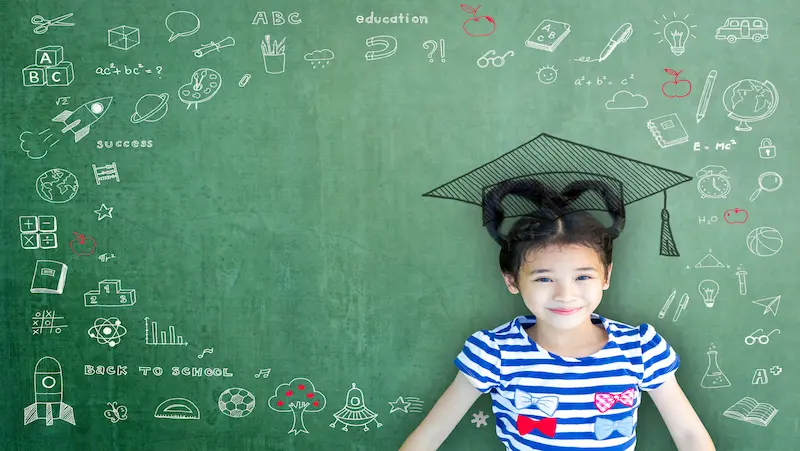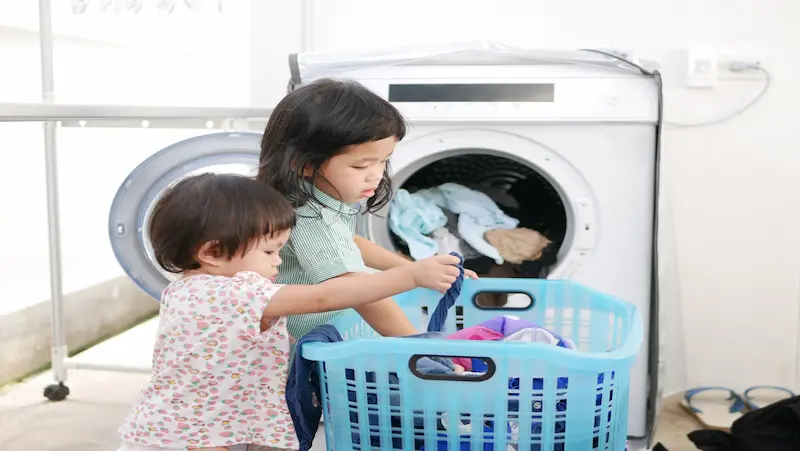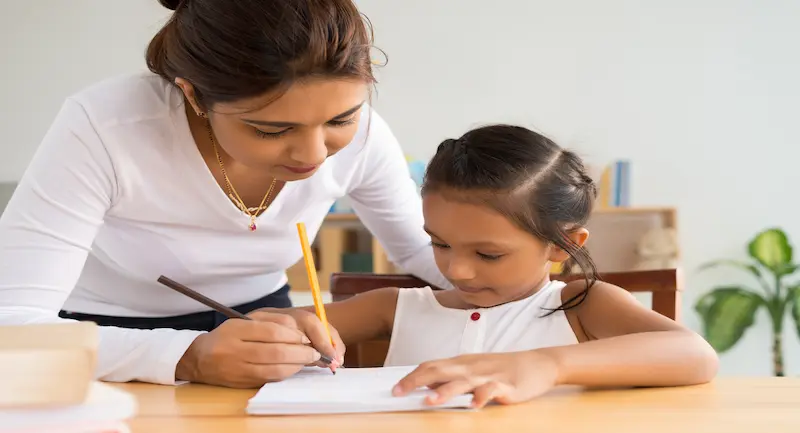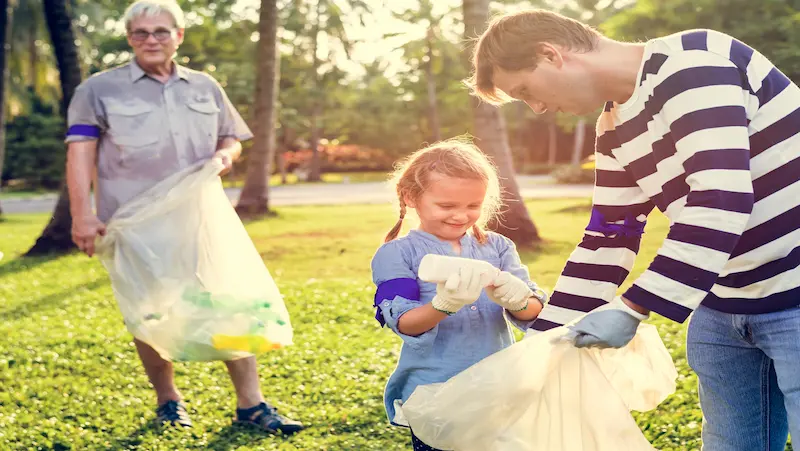Teaching kids responsibility is a crucial aspect of their development. As parents, we strive to raise independent and self-reliant individuals who can navigate life’s challenges with confidence. In this blog, we will explore the importance of teaching kids responsibility, discuss age-appropriate tasks and chores, and provide practical tips for parents to instil a sense of responsibility in their children. Join us on this transformative journey together and equip our kids with the essential life skills they need.
Table of contents
- Understanding the Value of Responsibility
- Age-Appropriate Responsibilities for Kids
- Setting the Foundation: Starting Early
- Leading by Example
- Creating a Structured Routine
- Effective Communication and Guidance
- Empowering Kids to Take Initiative
- Teaching Financial Responsibility
- Balancing Responsibility and Fun
- How to incorporate responsibility into enjoyable activities and experiences
- Celebrating Progress and Milestones
- Conclusion
- Frequently Asked Questions(FAQ’s)
Understanding the Value of Responsibility

Exploring the benefits of responsibility for children’s development
Delve into the various advantages that teaching responsibility offers to children. By instilling responsibility in kids, we empower them with improved decision-making skills, enhanced problem-solving abilities, increased self-confidence and self-esteem, and a strengthened sense of accountability and responsibility. They develop organisational and time management skills, cultivate empathy and consideration, and gain a sense of accomplishment. Understanding the benefits below allows parents to recognize the positive impact that teaching responsibility can have on their children’s overall development, providing them with a solid foundation for success in various aspects of life.
- Improved decision-making skills
- Enhanced problem-solving abilities
- Increased self-confidence and self-esteem
- Strengthened sense of accountability and responsibility
- Development of organisational and time management skills
How responsibility fosters independence, self-confidence, and accountability
Explore how responsibility contributes to fostering independence, self-confidence, and accountability While it may seem daunting at times, taking on responsibilities is a transformative journey that allows us to navigate life with resilience and purpose. Let’s explore how embracing responsibility can positively impact our lives and contribute to our personal growth.
- Cultivating Independence:
Responsibility provides a fertile ground for cultivating independence. When kids take on tasks and obligations, they gain the opportunity to rely on themselves, make decisions, and take actions to fulfil their commitments. This process enables them to develop problem-solving skills, critical thinking abilities, and a sense of initiative. By shouldering responsibilities, they become less dependent on others and more capable of navigating life’s challenges with confidence and autonomy.
- Building Self-Confidence:
Assuming responsibilities, big or small, boosts one’s self-confidence. When kids successfully accomplish their duties, it instils a sense of achievement and self-worth. Each completed responsibility reinforces the belief that they are capable and competent individuals. As they take on new challenges and overcome obstacles, their self-assurance grows, empowering them to embrace even greater responsibilities. This cycle of responsibility and accomplishment becomes a catalyst for personal growth and an unwavering belief in their abilities.
- Nurturing Accountability:
Responsibility and accountability go hand in hand. When kids take ownership of their obligations, they learn the value of being accountable for their actions. Recognizing the impact of their decisions and behaviors becomes integral to personal development. By acknowledging and learning from their mistakes, they foster a growth mindset and develop resilience. Accountability also strengthens their relationships, as others see them as reliable and trustworthy individuals who can be counted on to fulfill their commitments. learn about learning money for kids.
Age-Appropriate Responsibilities for Kids

Breaking down responsibilities based on different age groups
Break down responsibilities suitable for different age groups: toddlers and preschoolers, pre-teens, and teenagers. Tailor responsibilities to their developmental stage to ensure that the tasks assigned are both meaningful and achievable for our children.
Examples of tasks and chores suitable for young children, pre-teens, and teenagers
Here, we will provide specific examples of tasks and chores that align with each age group.
Toddlers and Preschoolers (ages 2-5):
- Putting away toys and books for kids
- Making their bed with assistance
- Helping to set the table
- Sorting laundry or pairing socks
- Cleaning up spills or messes with guidance
- Feeding pets under supervision
Pre-teens (ages 6-12):
- Making their bed independently
- Setting and clearing the table
- Doing age-appropriate household chores (dusting, sweeping, vacuuming)
- Assisting with meal preparation and cooking simple meals
- Taking care of personal hygiene and grooming
- Managing their schoolwork and completing homework assignments
Teenagers (ages 13 and above):
- Taking responsibility for personal belongings and keeping their room tidy
- Doing laundry independently
- Assisting with grocery shopping and meal planning
- Managing their own schedule and activities
- Contributing to household chores and responsibilities
- Managing personal finances and budgeting
Setting the Foundation: Starting Early

Tips for instilling responsibility in toddlers and preschoolers
We will provide practical tips for parents to begin instilling a sense of responsibility in toddlers and preschoolers.
Here are some tips that you can follow :
Introduce simple tasks and routines: Start with basic responsibilities to teach children the concept of taking on tasks and following a regular routine.
Provide clear instructions and guidance: Clearly communicate the steps and expectations involved in each task, offering guidance to ensure children understand what is required of them.
Assign age-appropriate tasks: Give children responsibilities that are suitable for their age and abilities to help them develop a sense of accomplishment and independence.
Establish simple routines: Implement consistent and manageable routines that children can easily follow, fostering a sense of structure and responsibility in their daily lives.
Clearly communicate tasks and expectations: Ensure children fully understand what is expected of them by clearly explaining their responsibilities, allowing for better comprehension and follow-through.
Introducing simple tasks and routines to develop a sense of responsibility
Offering specific examples of simple tasks and routines, parents can help develop a sense of responsibility in young children.
Here are some basic tasks that you can assign to kids :
Encourage tasks such as making their beds each morning: Teaching children to take responsibility for their personal space and daily routines.
Putting away toys after playtime: Instilling the habit of tidiness and organising belongings after use.
Assisting with age-appropriate chores like setting the table: Encouraging children to contribute to household responsibilities and develop a sense of teamwork.
Feeding a pet: Teaching children the importance of caring for another living being and fulfilling their responsibilities towards pets.
Leading by Example

The role of parents as role models for responsibility
The important role parents play as role models for responsibility cannot be overstated. Children learn by observing their parents’ behaviour, making it crucial for parents to demonstrate responsible behaviour in their daily lives. By fulfilling their own responsibilities promptly, displaying good habits for kids, and showing respect for others and their belongings, parents set a positive example for their children to follow.
Demonstrating responsible behaviour in daily life
Specific examples of responsible behaviour that parents can demonstrate in their daily lives include showing respect for the environment, honouring commitments and deadlines, and taking care of personal and household responsibilities. By showcasing responsible behaviour, parents inspire their kids to do the same.
Creating a Structured Routine
Establishing a routine that includes responsibility-related activities
Designing a structured routine can involve incorporating small examples of responsibility-related activities for kids. For instance, setting a specific time for daily chores such as making the bed, tidying up toys, or helping with meal preparation can help children understand their responsibilities and develop a sense of ownership. Additionally, allocating time for homework or study sessions, personal hygiene routines, and household tasks like taking out the trash or feeding pets can further reinforce the importance of a structured routine.
How routines help children understand expectations and develop a sense of ownership
Routines play a vital role in helping children understand expectations and develop a sense of ownership. By following a consistent routine, children learn to anticipate and complete their responsibilities within designated timeframes. This highlights the positive affirmations for kids impact of routines in promoting responsibility and helping children develop a sense of ownership over their tasks.
Effective Communication and Guidance

Strategies for effectively communicating expectations and responsibilities
Strategies for effectively communicating expectations and responsibilities to children include using clear and concise language, setting realistic and achievable goals, and offering guidance and support as needed. Effective communication is key in helping children understand what is expected of them.
Here are five strategies for effectively communicating expectations and responsibilities to children:
Use clear and concise language: Communicate instructions and expectations in a simple and straightforward manner that is easy for children to understand.
Set realistic and achievable goals: Ensure that the responsibilities assigned to children are appropriate for their age, abilities, and developmental stage, setting them up for success.
Offer guidance and support as needed: Be available to answer questions, provide clarifications, and offer guidance to help children understand and fulfill their responsibilities effectively.
Break tasks into smaller steps: For complex or challenging responsibilities, break them down into smaller, manageable steps, making it easier for children to comprehend and accomplish them.
Provide visual aids or written reminders: Use visual aids, charts, or written reminders to reinforce expectations and responsibilities, serving as visual cues for children to remember and follow through with their tasks.
Encouraging open dialogue and fostering understanding
Strategies for effectively communicating expectations and responsibilities to children include using clear and concise language, setting realistic and achievable goals, and offering guidance and support as needed. Effective communication is key in helping children understand what is expected of them.
Empowering Kids to Take Initiative

Encouraging self-motivation and problem-solving skills
Nurturing self-motivation and honing problem-solving skills in children are essential aspects of teaching responsibility. By empowering children to take ownership of their tasks and responsibilities, fostering their initiative and independence, and encouraging them to set goals and find solutions on their own, parents play a vital role in instilling a sense of responsibility and self-reliance in their children.
Allowing kids to take on additional responsibilities and projects
Allowing children to take on additional responsibilities and projects beyond their regular tasks offers valuable opportunities for growth and development. It helps them develop essential skills such as problem-solving, decision-making, time management, and organisation. Successfully completing new responsibilities boosts their self-confidence and fosters independence and self-reliance.
Teaching Financial Responsibility
Introducing the concept of money management and savings
Understanding the importance of teaching kids about money management and savings is crucial for their long-term financial well-being. By imparting financial knowledge and skills at a young age, parents empower their children to make informed decisions about money. Teaching the value of money helps kids develop a sense of financial responsibility and appreciation for the effort required to earn it.
Tips for teaching kids about budgeting and making responsible financial decisions
Here are practical tips for teaching kids about budgeting and making responsible financial decisions:
Provide an allowance and teach money management: Give kids an allowance to learn about handling money and teach them how to budget and make responsible spending decisions.
Involve kids in shopping and budgeting decisions: Engage kids in shopping trips and involve them in budgeting discussions, teaching them about comparing prices, making thoughtful purchases, and understanding the value of money.
Discuss the importance of saving and setting goals: Teach kids the significance of saving money for the future and help them set goals for saving, whether it’s for a specific purchase or long-term financial security.
Open a savings account: Encourage kids to open a savings account and teach them about the process, benefits, and responsibility of managing their own money in a secure and organised manner.
Teach the difference between needs and wants: Help kids differentiate between essential needs and discretionary wants, instilling the concept of prioritising spending and making mindful choices.
Encourage entrepreneurial endeavours: Support and encourage kids’ entrepreneurial interests, such as starting a small business or offering services, to foster responsibility, financial independence, and an entrepreneurial mindset.
Model responsible financial behaviour: Set a positive example by demonstrating responsible financial habits and decision-making, as kids often learn by observing their parents’ behaviours.
Discuss financial challenges openly: Engage in open conversations about financial challenges and experiences, allowing kids to understand the realities and potential obstacles of managing money responsibly.
Balancing Responsibility and Fun

Emphasising the importance of balance in a child’s life
Emphasising the significance of balance in a child’s life, these important aspects come to light: prioritising leisure activities, downtime, and fun, and maintaining a healthy work-life balance. By recognizing the importance of these aspects, we can promote overall well-being in kids.
How to incorporate responsibility into enjoyable activities and experiences
Incorporating responsibility into enjoyable summer activities for kids and experiences can be achieved through various practical suggestions. One approach is to turn chores into games for kids or challenges, making them more engaging and enjoyable for children. Another idea is to involve children in planning and organising family outings, giving them a sense of responsibility and involvement in decision-making. Additionally, highlighting the rewards and sense of accomplishment that come with completing responsibilities can motivate children to take ownership of their tasks. By making responsibility enjoyable, we foster a positive attitude towards taking ownership and completing tasks, creating a nurturing environment for children’s development.
Celebrating Progress and Milestones
Recognizing and celebrating achievements in responsible behaviour
Recognizing and celebrating achievements in responsible behaviour plays a crucial role in motivating and encouraging children. By acknowledging their efforts and milestones reached, parents create a supportive and celebratory environment that fosters a sense of pride and accomplishment. This can be done through verbal praise, rewards, certificates, or family celebrations. Celebrating achievements not only reinforces responsible behaviour but also boosts children’s self-confidence and reinforces the value of their efforts. It serves as a powerful tool in nurturing their sense of responsibility and motivating them to continue demonstrating responsible behaviour in the future.
Encouraging children to take pride in their growth and development
Encouraging children to take pride in their growth and development is essential for building their self-esteem and confidence. By reflecting on personal achievements and progress, parents can help children recognize their accomplishments and appreciate their efforts. Fostering a growth mindset and self-appreciation involves highlighting the value of learning from mistakes and embracing challenges as opportunities for growth. Additionally, encouraging children to set new goals and challenges nurtures a sense of ambition and continuous improvement. By instilling a sense of pride and confidence in their responsible behaviour, parents empower children to take ownership of their actions and strive for personal growth.
Conclusion
In conclusion, teaching kids responsibility is a lifelong journey that begins in the early years and continues as they grow. By understanding the value of responsibility, setting age-appropriate tasks, leading by example, providing effective guidance, and reinforcing responsible behaviour through rewards and consequences, we can empower our children to become responsible, confident, and independent individuals. By teaching them financial responsibility, balancing responsibility with fun, and celebrating their progress and milestones, we lay the foundation for their success in life. Start this rewarding journey today and witness the positive impact it has on your children’s lives. Together, let’s shape a responsible future generation.
Also, BrightChamps provides a comprehensive platform for learning about money for kids, offering interactive and engaging resources that teach financial literacy, budgeting, saving, and other essential money management skills. Learn about financial education for kids also.
Frequently Asked Questions(FAQ’s)
A1: Teaching kids responsibility is crucial for their development because it helps them become independent, accountable, and confident individuals. Responsibility instills important life skills, decision-making abilities, and a sense of accountability for their actions.
A2: Teaching kids responsibility from a young age has several benefits. It promotes self-reliance, problem-solving skills, and a sense of accomplishment. It also helps develop their organizational abilities, time management skills, and a strong work ethic.
A3: Teaching kids responsibility encourages them to take ownership of their actions and tasks, promoting independence. It helps them develop essential life skills, decision-making abilities, and problem-solving skills, enabling them to navigate the challenges of life with confidence and autonomy.
A4: Practical ways to start teaching kids responsibility at home include assigning age-appropriate tasks and chores, establishing routines, setting clear expectations, and providing guidance and support. Parents can lead by example, encourage open communication, and provide positive reinforcement for responsible behavior.
A5: Parents can encourage and reinforce responsible behavior by providing verbal praise and recognition, using rewards and incentives, implementing logical consequences for irresponsible behavior, and maintaining open communication. Consistency, positive reinforcement, and setting clear expectations are key.
A6: Yes, there are age-appropriate tasks and chores for teaching kids responsibility. For young children, tasks like tidying up toys and making their beds are suitable. Pre-teens can handle tasks such as setting the table or doing laundry, while teenagers can take on more responsibilities like cooking meals or managing their schoolwork.
A7: Teaching responsibility to kids improves their self-esteem and confidence by giving them a sense of accomplishment and competence. When children successfully complete tasks and take ownership, they feel more capable and confident in their abilities, leading to increased self-esteem.
A8: Parents may face challenges such as resistance, lack of consistency, or unrealistic expectations. To overcome these challenges, parents can start with small, achievable tasks, maintain open communication, provide guidance and support, and adjust expectations based on their child’s age and abilities. Consistency and positive reinforcement are key to overcoming challenges.
A9: Parents can strike a balance by assigning age-appropriate tasks, gradually increasing responsibilities as their child grows, and considering their child’s capabilities and workload. It’s important to provide guidance and support, ensure tasks are manageable, and create a supportive environment where children can ask for help when needed.
A10: Teaching kids responsibility equips them with essential life skills such as time management, decision-making, and accountability. These skills are vital for their future success in personal and professional settings, enabling them to handle responsibilities, make responsible choices, and achieve their goals.


 We are an army of educators and passionate learners from BrightChamps family, committed to providing free learning resources to kids, parents & students.
We are an army of educators and passionate learners from BrightChamps family, committed to providing free learning resources to kids, parents & students.













